|
Recently the state and future of public education have been one hot topic in North America, with the dramatic shift in US administration.
Now feels like a fitting time to share the perspective of an engaged voice in US Public Schools, Natalie Bradley Overton. Natalie has built her career in education, currently working with Blue Engine, an organization dedicated to preparing students in low-income areas for college. Blue Engine works by involving BETAs (Blue Engine Teaching Assistants) in classrooms with full-time teachers, increasing the direct instruction students receive. As the current Director of Diversity, Equity and Inclusivity for the organization, Natalie plays an important role in broadening and deepening the work of Blue Engine and it's educators. Last spring, I spent a day in Washington Heights with Natalie, met a few BETAs and visited classrooms in sessions at Blue Engine's flagship partner school, WHEELS (Washington Heights Expeditionary Learning School). It was a special visit and a special community. I'm excited to share this video, the next in the "Educators Who Inspire" series, especially at this unprecedented turning point. As Natalie explains, "We must be ready to do the work". (Fun Fact: President Obama gave a nod to Blue Engine in a 2014 speech, which you can see here.)
0 Comments
In Portland, Oregon last week, I had the pleasure of presenting at AERO 2016 (more to come on that!).
My favourite part of these conferences is the unique connection I find with individuals. One such individual was Tyler Barley, a young man in an innovative degree program at RIT (Rochester Institute of Technology), New York. Connections and Colonization During an early Q&A on day 1, Tyler expressed a powerful insight, questioning who the faces were leading "progressive" programs for Aboriginal youth. He pointed out the need to address the imbalances that continue from times of colonization. He was by far the most refreshing voice in this room of educators, parents, students and academics. I remember thinking, "Whoa. Who is this guy? And why isn't he up here giving a talk?!" Later on, I sat outside with Tyler and Wendy (an Academic Advisor from the School of Individualized Study (SOIS) at RIT). We ended up chatting through an entire workshop slot, about everything from his earlier comments, to the resilience of young people, and the power of Nature. Individualized Learning Since I started lecturing in 2011, I've been thinking about the potential for more individualized learning in higher ed, mainly because I've experienced how uninterested many students can be in standard programs. (I used to ask students on Day 1, "Why are you taking this course?", hoping to hear about their interests. The most common response I would get though, was "'Because we have to!!") The program Tyler is in through the SOIS on the other hand, allows the learner to tailor the subject areas in their program, leading to a unique and specialized interest area. Other Applications? This program reminds me of liberal arts programs that friends have taken at the Master's level, At the undergrad level though, I would love to see and help design more of these offerings, where students who have a specific interest area / key question / challenge they wanted to address, could tailor their studies accordingly. Of course, foundations courses in many fields can be useful, but the ability to weave in more catered combinations of courses feels like the way of the future (/present!) in my opinion. Check out the quick video above, featuring the stories of SOIS and Tyler. Thanks to Tyler and Wendy for sharing their time with me in Portland!
After a bit of downtime this summer, I am pleased to introduce you to Maysaa Bazna, the Director and Founder of Pono in New York City. Pono is a small alternative, democratic school that also places emphasis on outdoor education, with two days spent outdoors each week. The school also offers a sliding scale for tuition in an attempt to address access issues.
Maysaa has an interesting academic background, having earned multiple Masters degrees in reading and learning disabilities, and an Ed.D. in curriculum and teaching. Her research delved into the history of education and systems of learning across cultures and periods, giving her insight into what was valuable for learning today. Prior to founding Pono, she was a Professor at Columbia University's Teacher's college. After having a daughter of her own, Maysaa realized she was unhappy with the options available for her schooling, and thus was born the inspiration behind Pono (meaning to be in balance). I spent a lovely day with Maysaa and the other facilitators and kids at Pono, joining them on an outdoor day with a naturalist in Central Park, followed by a fun afternoon of them solving their way out of an "escape room". In this video, Maysaa speaks about the need to take children's interests in learning seriously, the value of visiting teachers, and how kids excel in academics when they are ready and eager to learn.
Maysaa is definitely an inspiring educator and I'm so happy to be able to share part of Pono's story!
I am pleased to introduce you to Juan Camilo Cardenas, Associate Professor in the School of Economics at Los Andes University, Bogota. Juan Camilo is a leader in the field of Experimental Economics in Latin America, and has been a Fulbright Scholar and visiting scholar at Harvard University. His research has focused on human behaviour in solving social dilemmas, and he brings his experimental approach in these areas into the classroom with his students.
Juan Camilo fit me in for a meeting after his class one afternoon on the beautiful Los Andes campus. He gave me a tour of campus as well, with students gathering on campus to watch an important futbol match for Colombia. After having a quick coffee, Prof. Cardenas graciously allowed me to interview him despite having another meeting to run to - he was efficient with his words! :) In this video, Juan Camilo speaks about the importance of learning in the field rather than from textbooks, and the need for a more participatory approach to teaching in university classrooms:
I am very grateful to Juan Camilo for taking the time to meet with me that day. I always considered studying Economics more deeply in undergrad; if I had experienced profs like Juan Camilo, I would have definitely taken the plunge!!
For more on Juan Camilo Cardenas' work, visit his Faculty Page. A few days ago, I arrived in Colombia to spend time exploring locally based alternatives in education with the support of Schools Without Borders (thank you SWB!). I first came here five years ago, and fell in love with so much of the country - the people, their passion, the mountains, plains, and love for life (all amidst the complexity of conflict and transition). This past weekend, I was grateful to be welcomed by one of my main connections here, Veronica Puech, a co-founder of Kalapa learning community, who I look forward to interviewing as part of this month's spotlight series. After a really nice day of catch ups with special characters in the city, we spent the weekend just north of Bogota in Suesca. The perfect setting to disconnect from our iPhones and reconnect with inspiring people (and the best cheese fondue!). Hosted by a couple working in design and educational architecture, and in the company of other educators, a business owner, and strong development perspectives, our conversations helped to frame the need for alternatives here in Colombia. To paint a broad picture of the complexity of issues here, I'll share some of what we discussed: The pressure to focus on test scores vs. a real need to improve math and language learning outcomes - Colombia is working towards membership in the OECD; As part of its accession to the OECD, PISA test scores taken by 15 year old students (you can try sample test questions here), are considered. Colombia's results in the PISA tests were amongst the lowest of the 71 countries who participated in the last round of the tests, and there are large gender gaps. This increases pressure to focus on test scores (outcome) rather than the methods of teaching and learning (process leading to better outcomes!). - There is a real need to increase competency in math and language skills, especially in public schools but the challenge is in how to do this effectively. A need for more "integral" education, and considerations for post-conflict settings - This topic really resonated with me, as I believe so strongly in the need for integral or more holistic education, that considers all aspects of personality (Intellectual, emotional, physical, spiritual) in the development of learners. - A need for more creativity in learning as part of this integral education - Understanding that students in post-conflict areas or settings need special considerations and integrated programs catered to their needs Challenge of (a lack of) political will and the (lack of) power of the Ministry of Education - Short terms in office, changing priorities, big bureaucracy make it difficult to implement change in the short or long term. - the Ministry of Education isn't very influential or powerful relative to other areas of government in Colombia. "Status" of education over quality of learning - Parents' concern with the reputation and status of the school over the true quality of the learning that is happening; reputation of the school represents status for some parents, and it is difficult to shake this mindset. Value of teachers and teaching as a profession - As in many other countries, teaching is not valued highly as a profession or career choice in Colombia, which results in not the most motivated or qualified people entering the field. - Moving towards more highly qualified and valued teachers (at the other end of this is the Finnish system for example) would help improve the quality of education. All of this led to...: The hope for solutions from smaller models! - The flexibility smaller models have to implement change and test different methods has potential in influencing the bigger system eventually - These smaller models need to show mastery of learning plus the ability to do this in an integral way in order to be adopted in other settings. I am grateful to all of my hosts this weekend, for the rich conversations and company!
I look forward to profiling some of the exciting work happening here in Colombia, starting with Kalapa in the coming week (..and hopefully improving my Spanish tambien :)) I have decided to focus my blog for the remainder of 2016 on a monthly "Spotlight Series", profiling the ideas of inspiring people ranging from educators and researchers, to entrepreneurs and designers around the world. I have been fortunate to connect with so many people working on fundamental change in education, and I am excited to share their work and ideas with you. Each interviewee will be asked three questions: What paradigm shifts need to happen in education?; What challenges do you face in advancing alternative or progressive education?; and What hopes do you have for education over the next decade? The idea for a video series came to me while I was preparing to meet Aaron Eden (see his blog here) at the Green School in Bali this past fall. I scrambled through the streets of Ubud to find a stand for my iPhone, and a kind driver helped me find one just in time. My main aim with this series is to raise awareness of the work that is already happening, while acknowledging the challenges in creating programs outside of the conventional mould. Having an idea of our collective hopes for education also gives us lots to look forward to, and to work towards. (Note: For the latest posts and embedded videos, click on the Spotlight Series category.)
Recently I was able to visit the Green School in Bali, a school that’s been on my list and on my mind since I first watched founder John Hardy’s Ted Talk five years ago. The idea of a school based on green design principles, aiming to be off the grid, made of open air bamboo structures?! I was basically sold before you could say "John Hardy's sarong!" (the man always wears one!)
Hardy was born and raised in Canada, but was not quite satisfied with our schooling or our society. In his TED talk, he explains how he didn’t quite fit in conventional schools; his needs were not addressed by the rigid schooling he experienced. He moved to Bali in the 70s as a young man, and has been there ever since. After spending a good part of his life building a successful jewellery brand, he sold the company in 2007. Motivated partly by Al Gore’s film An Inconvenient Truth, Hardy set out to design and run a school that was based on green principles. The result is a beautiful school sprawling over 20 acres of land, about a half an hour from Ubud, Bali. In the following post, I’ve tried to capture my overall impressions from one of my visits to the school: what I loved, what intrigued me, and what was disappointing.  We’ve all hit that wall dealing with numbers. For me, the moment came in first year calculus. The proofs were over my head, my profs may as well have been talking textbooks, and I felt like an idiot. I seriously thought about dropping out of my program once a term. Thankfully I had a support system to help me get through (really good and smart friends, and a mother who told me I would move back to the suburbs if I dropped out. Ironically, chalk one up to fear-based motivation!) That all or nothing feeling - you either “get it” or you don’t - is one that is pervasive in math learning and teaching. As I teach a group of adult learners in a foundations math course this term, I’m starting to see the signs of anxiety in them as learners. A quiz recently on conversion rates had a handful of them visibly stressed, and verbally cursing about having to do this and wanting to quit. This was a group of people, who, until this point, had been surprisingly excited about learning math. So what is going on here, and what can we do?! It’s not difficult to critique the traditional college lecture; anyone who has sat in one can attest to how they are generally passive, impersonal, and still centred on the person at the front disseminating information to the crowd. How much a student absorbs depends on their capacity to retain information on a given day, their interest level, how much they connect to the instructor, and how capable the instructor is at communicating information. "Tell me and I forget. Teach me and I remember. Involve me and I learn." - Benjamin Franklin In an airport lounge recently, I found myself with time to kill and US dollars to spend. Right away a magazine in the gift shop caught my eye, with this cover: “CAN YOU UN-TEACH RACISM”? What a bold question. I picked up the magazine and read the article before I even made it to my gate.
Race issues in the States and Canada recently have been getting a lot of media attention. Here in Canada, this Desmond Cole piece against police carding sparked some debate in my personal and professional circles. Talking about race is difficult, and can be very frustrating. Race issues also don't seem to be discussed in an informed way. So when I came across this piece, quotes like the following really resonated: |
Categories
All
AuthorA passionate educator.. on a quest for a schooling model to love! Archives
August 2017
|
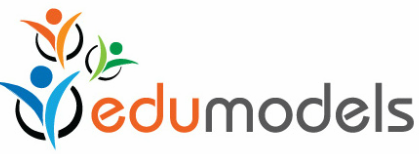
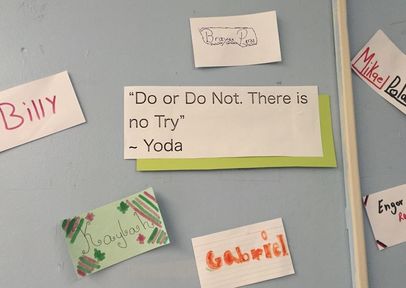
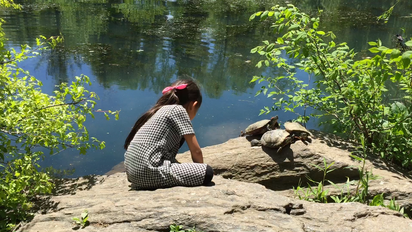
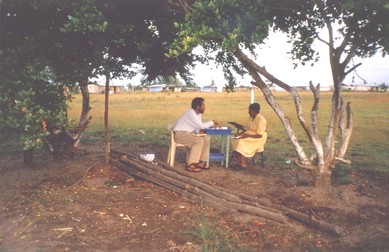
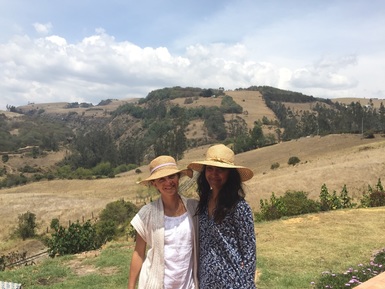
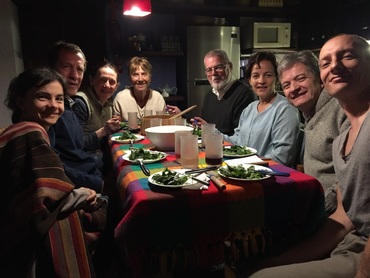
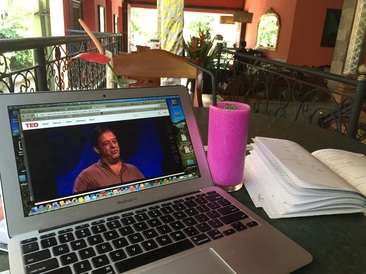
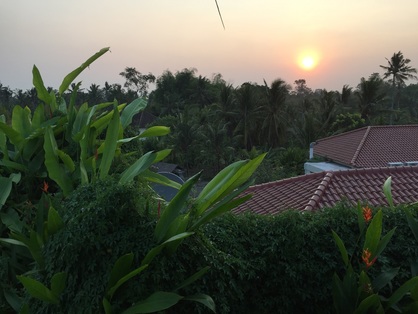
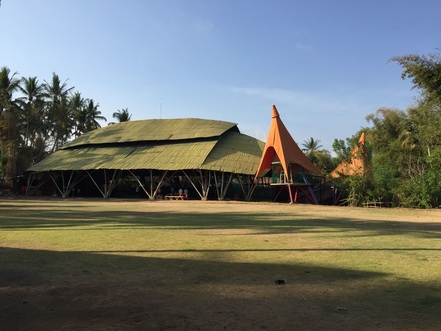
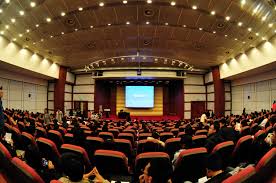
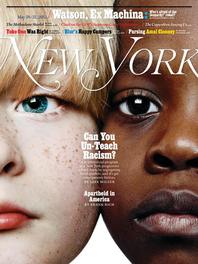
 RSS Feed
RSS Feed
